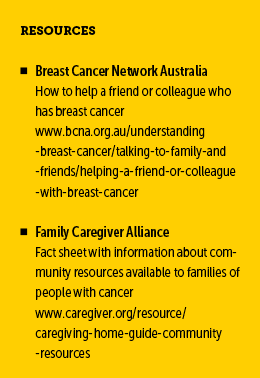What Does it Feel Like to Have a Family Member Go Through Cancer?
Jump to a section
Cancer comes into our lives uninvited like a relative who drops their suitcase on your couch without warning. It is an alien intruder that takes its time to show up in ways that the medical team cannot act fast enough to address. If you are unlucky enough to get a more fatal diagnosis, it stings and hurts everyone close to the patient in the way that a rock hits the water and ripples out. It affects all members of both sides of the family and breaks hearts, ripping it apart.
My nursing career has been a wonderful experience spanning 45 years this year. During annual Nurses Week celebrations, I was always appreciative of the small gifts at the hospital or in academia. It would have been nice to get a microwave, a refrigerator, or a car, but alas, as usual, the budget did not allow for those. My reward was improving my patients’ care by comfort measures, whether I was in an acute neonatal unit caring for critically ill infants, in the pediatric oncology unit trying not to break my own heart, or attending to adults in an ear, nose, and throat clinic.
But that experience is different from having cancer invade your son’s family and afflict his wife with the rough-and-tumble road of triple-negative breast cancer. This unwieldy disease is as invasive and ugly as you might imagine. It turns the outer skin of both breasts rough and orange like the outside of an orange peel. It sneaks into the lymph nodes, slides into the base of the lungs, and goes after the mediastinum. From the perspective of a nurse, it is a difficult prognosis; as a mother, it is heartbreaking to witness. This disease is leaving a small family with a 3-year-old and a 5-year-old battered, confused, and starting to lose hope.
But wait! I was the nurse who believed in hope. I taught others, measured it in research, and urged others to have it, even if things seemed bad. When you are the grandma of two little ones in this dark sea without a paddle, you briefly forget that you are a nurse. You move into mama bear survival mode, always strategizing how to make things work. Every day you wake up and think, “How can I help them?” Even if it only means being present, cooking together, taking outings with the children, and explaining how great life can be. As the nurse in your family when someone is experiencing cancer, it is crucial to remain in your family role as much as possible and avoid being a force for gloom and doom.
My daughter-in-law is a lioness and Joan of Arc all at once. She is strong, fit, kind, thoughtful, and a funny lady. I am cherishing every moment now and will find the strength to carry this family through if this clinical trial fails us. Yes, I still have hope, but nurses are realists, and we have to be honest and tell it like it is. According to modeling and role-modeling theory (Erickson et al., 1983), hope, control, support, physical health, and satisfaction with daily living must be in balance for true self-care to exist. The role of the nurse in this theory, and also the role of the mother, is one of unconditional acceptance, nurturance, and facilitation with the patient and thus, the family members. This is particularly the case when it comes to supporting the children of people with cancer, which requires the nurse to be genuinely interested in the emotions and relations within the family (Holmberg et al., 2020). I have straddled the two worlds of mother and nurse, and I pray that I have done my best because this job is far from over.
About the Author
Celeste M. Baldwin, PhD, APRN, CNS, is an assistant professor for the online DNP Program at Regis College in Weston, MA. The author takes full responsibility for this content and did not receive honoraria or disclose any relevant financial relationships. Baldwin can be reached at celeste.baldwin@regiscollege.edu, with copy to CJONEditor@ons.org.
References
Erickson, H.C., Tomlin, E.M., & Swain, M.A.P. (1983). Modeling and role modeling: A theory and paradigm for nursing. Prentice Hall.
Holmberg, P., Nilsson, J., Elmqvist, C., & Lindqvist, G. (2020). Nurses’ encounters with children as next of kin to parents with a cancer diagnosis on oncology wards. Nordic Journal of Nursing Research, 40(1), 33-40. https://doi.org/10.1177/2057158519868437


